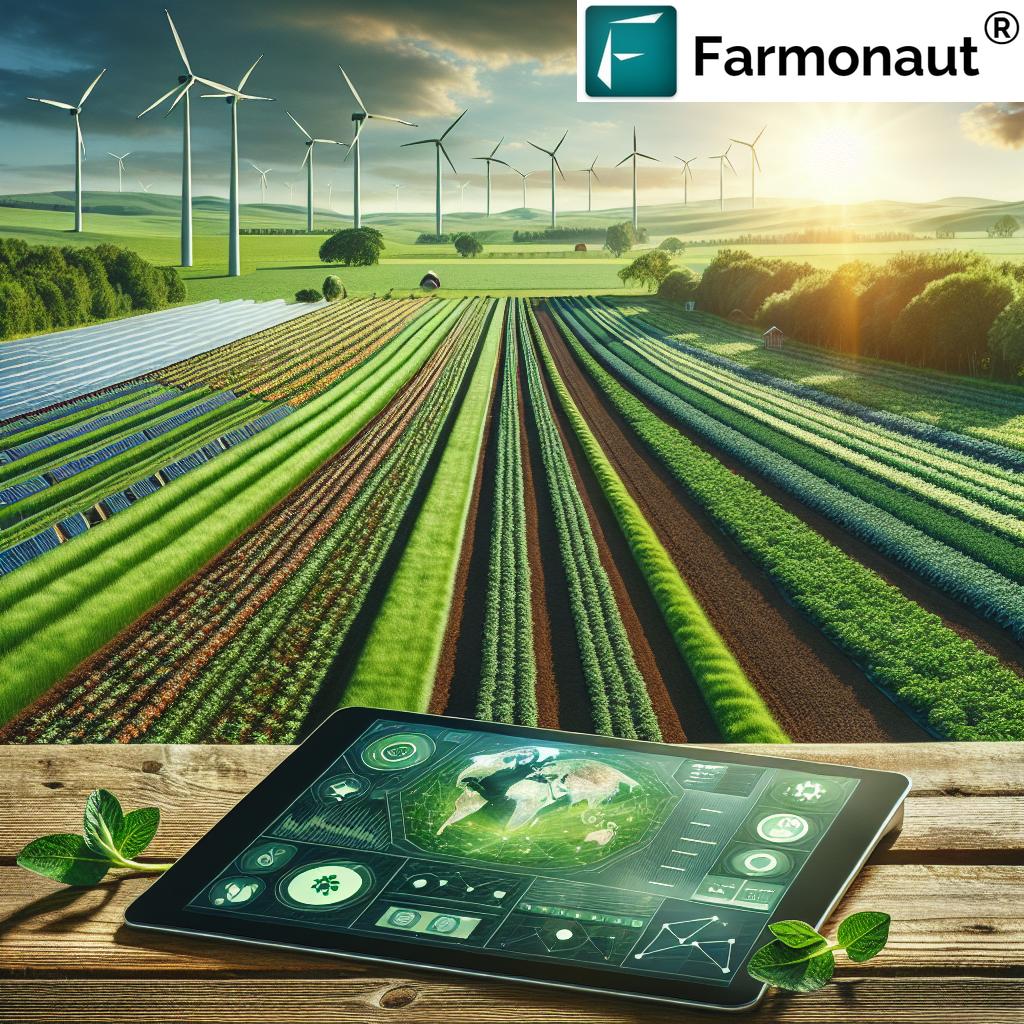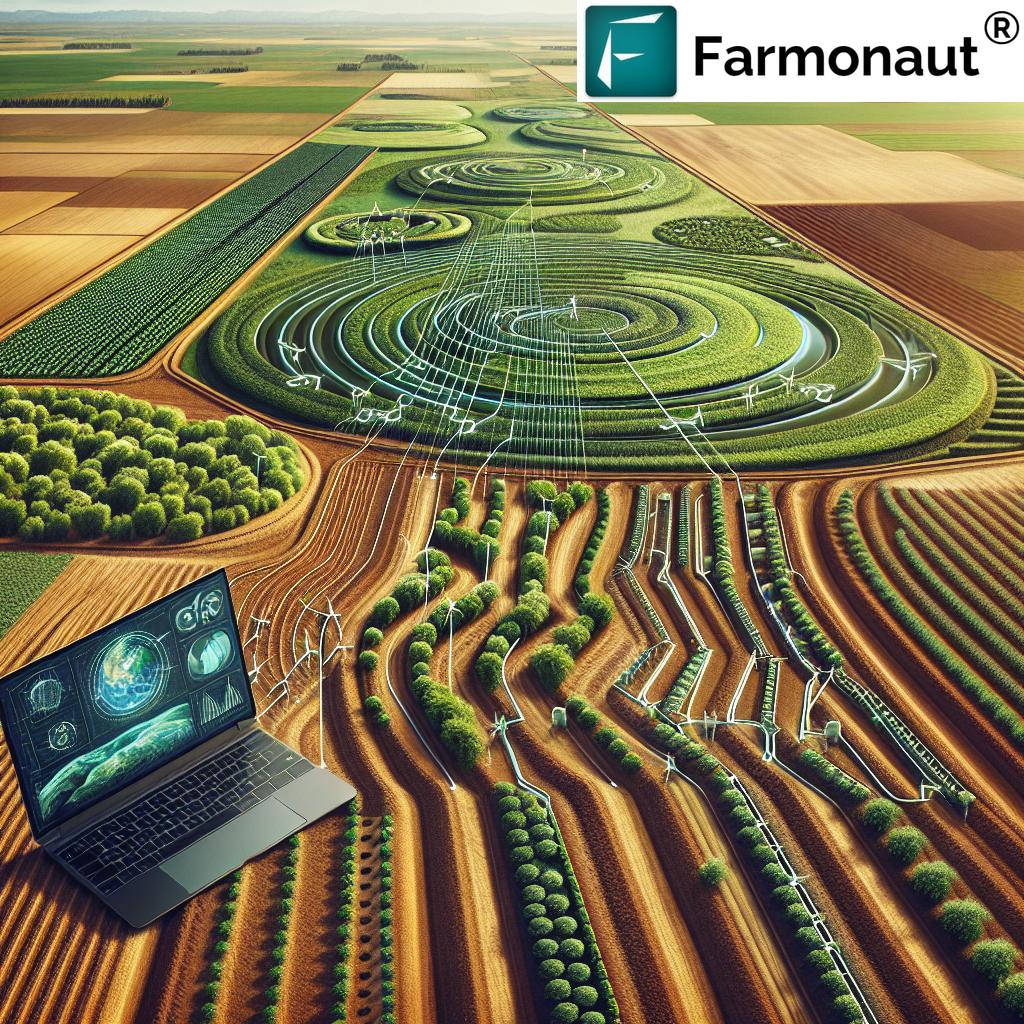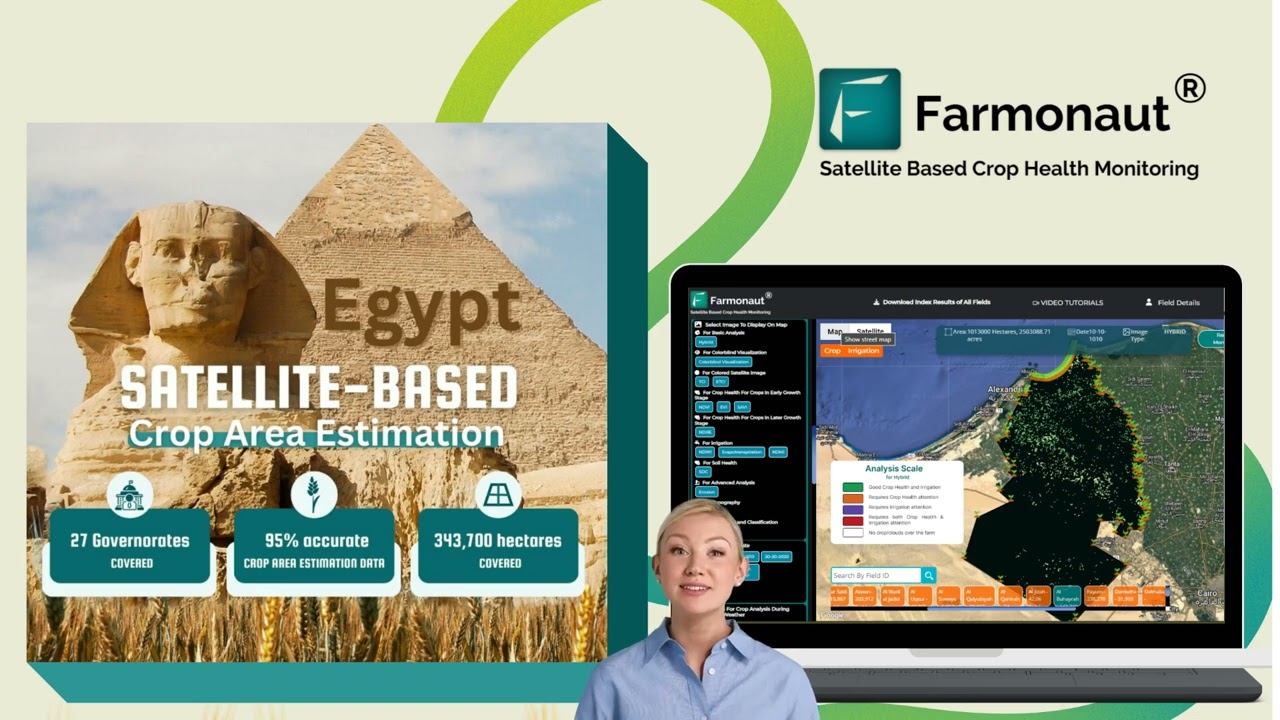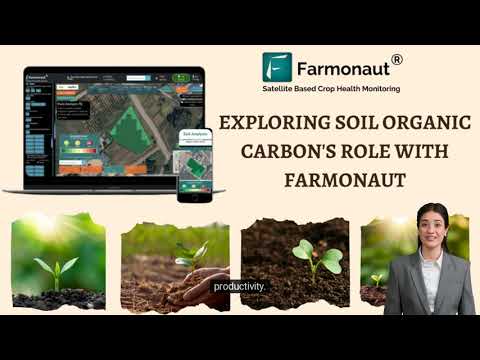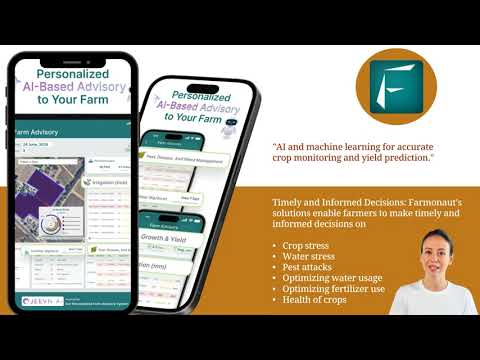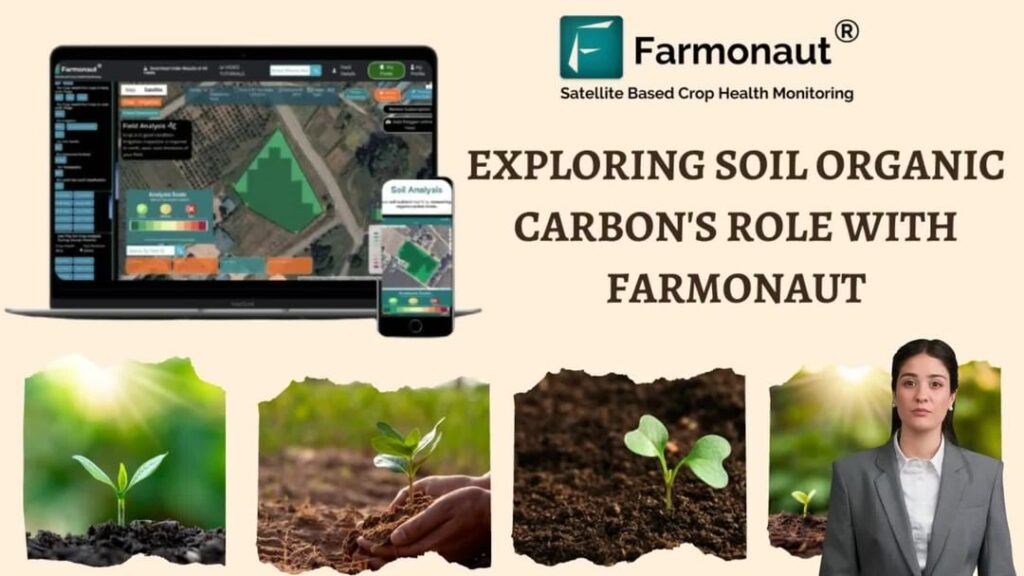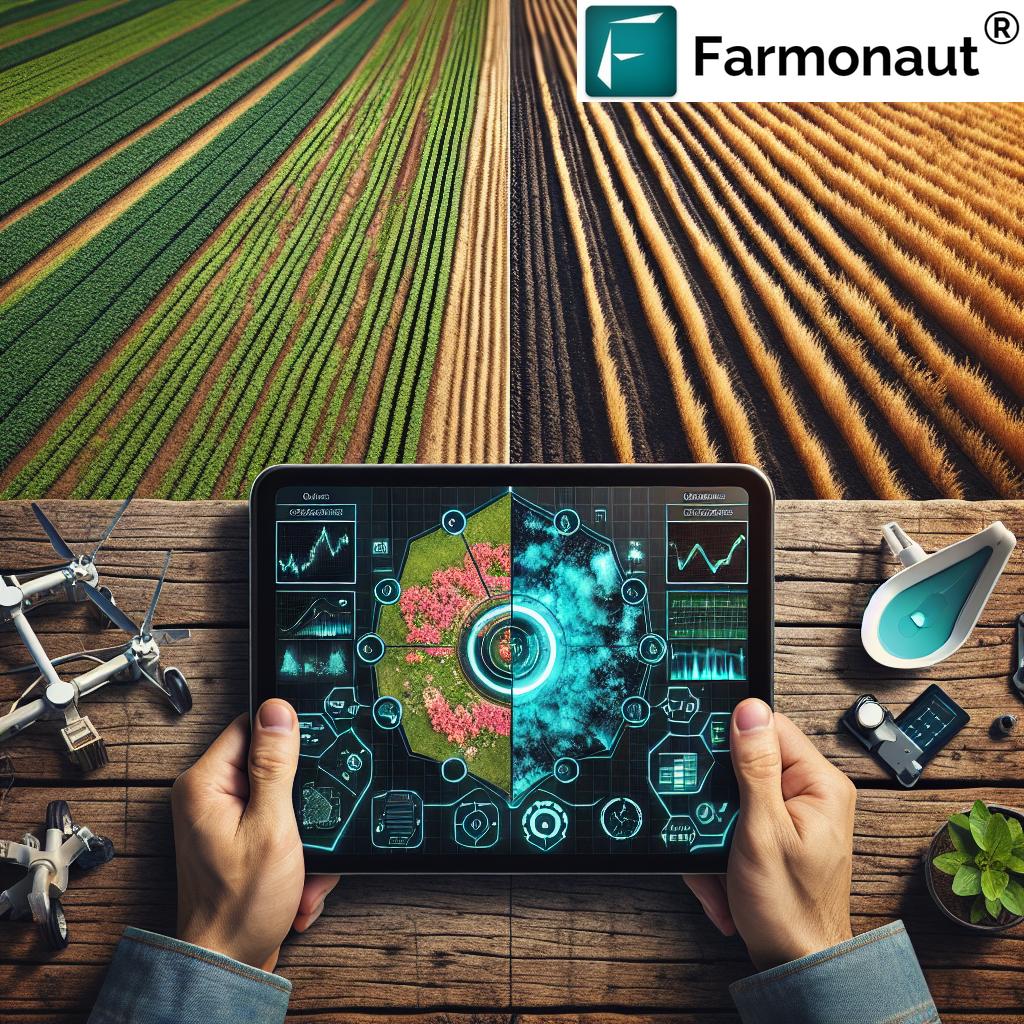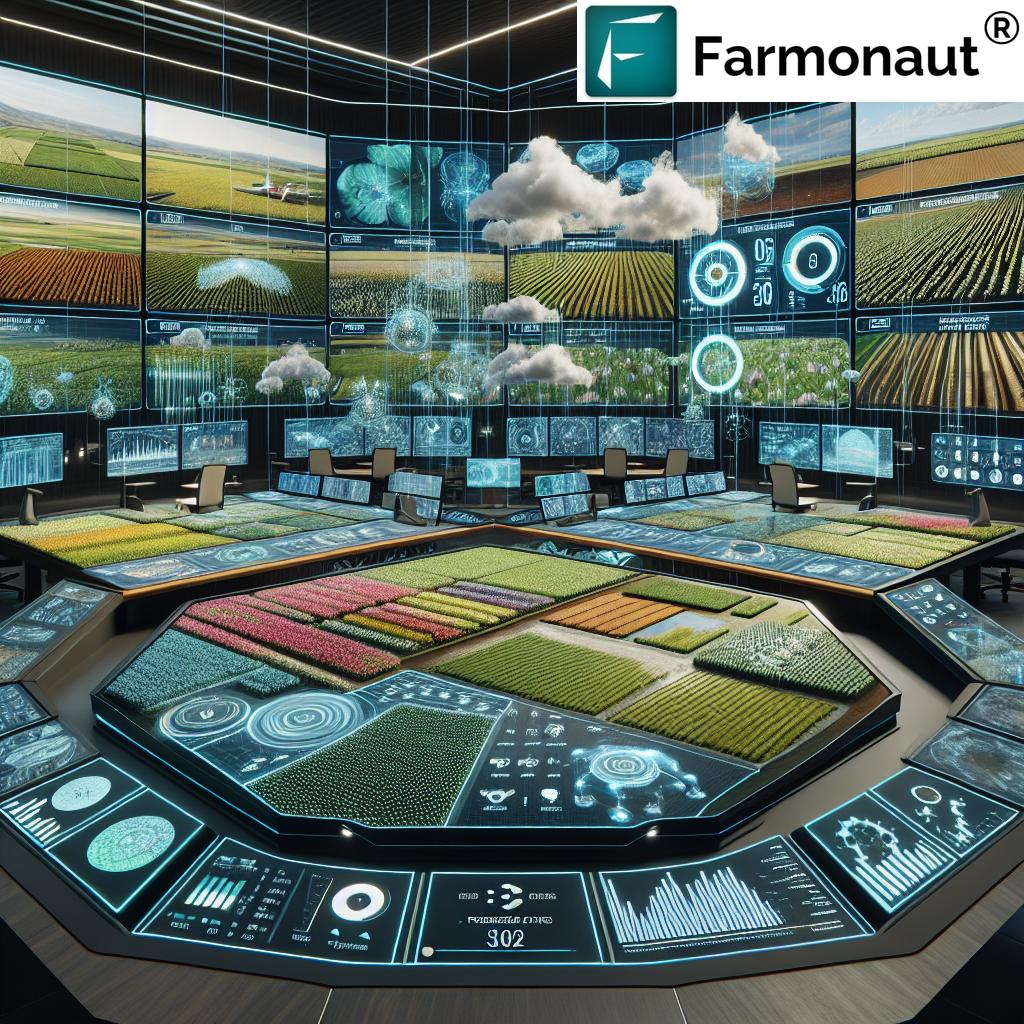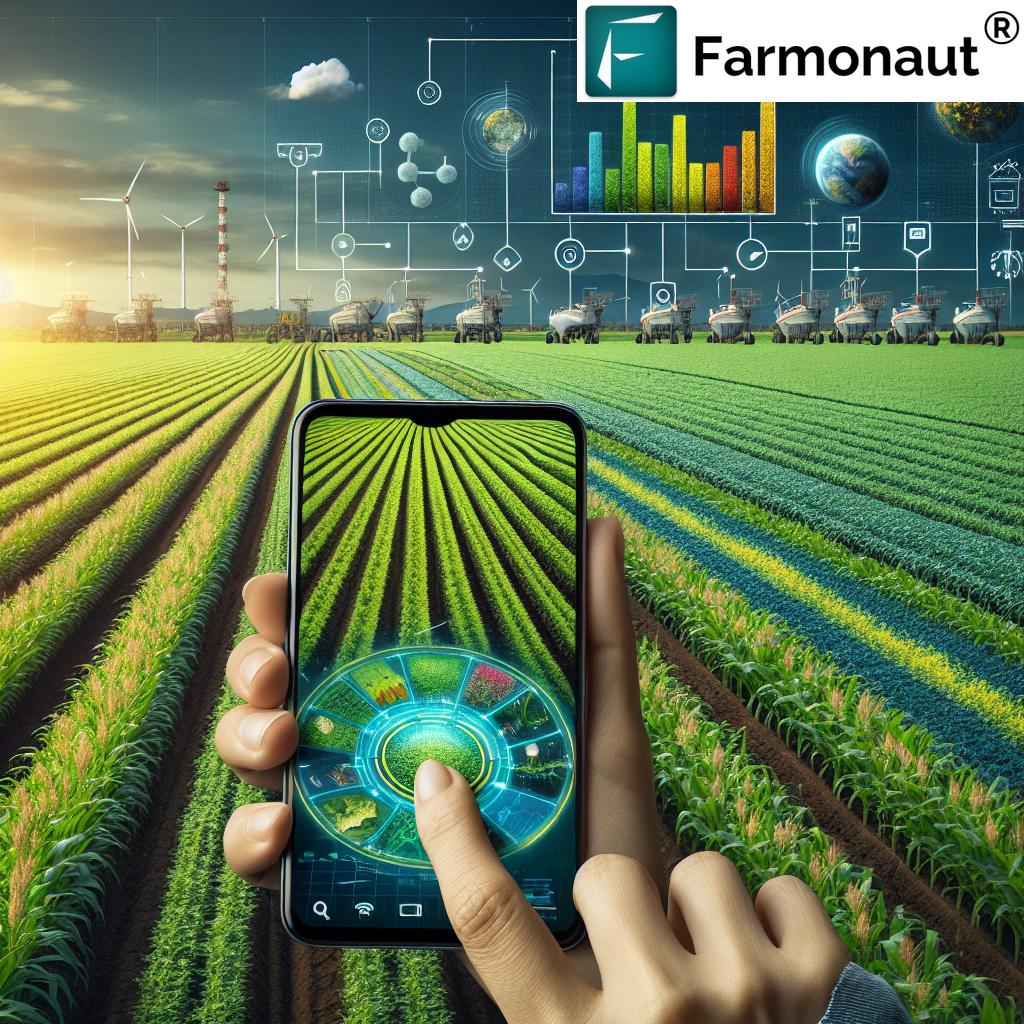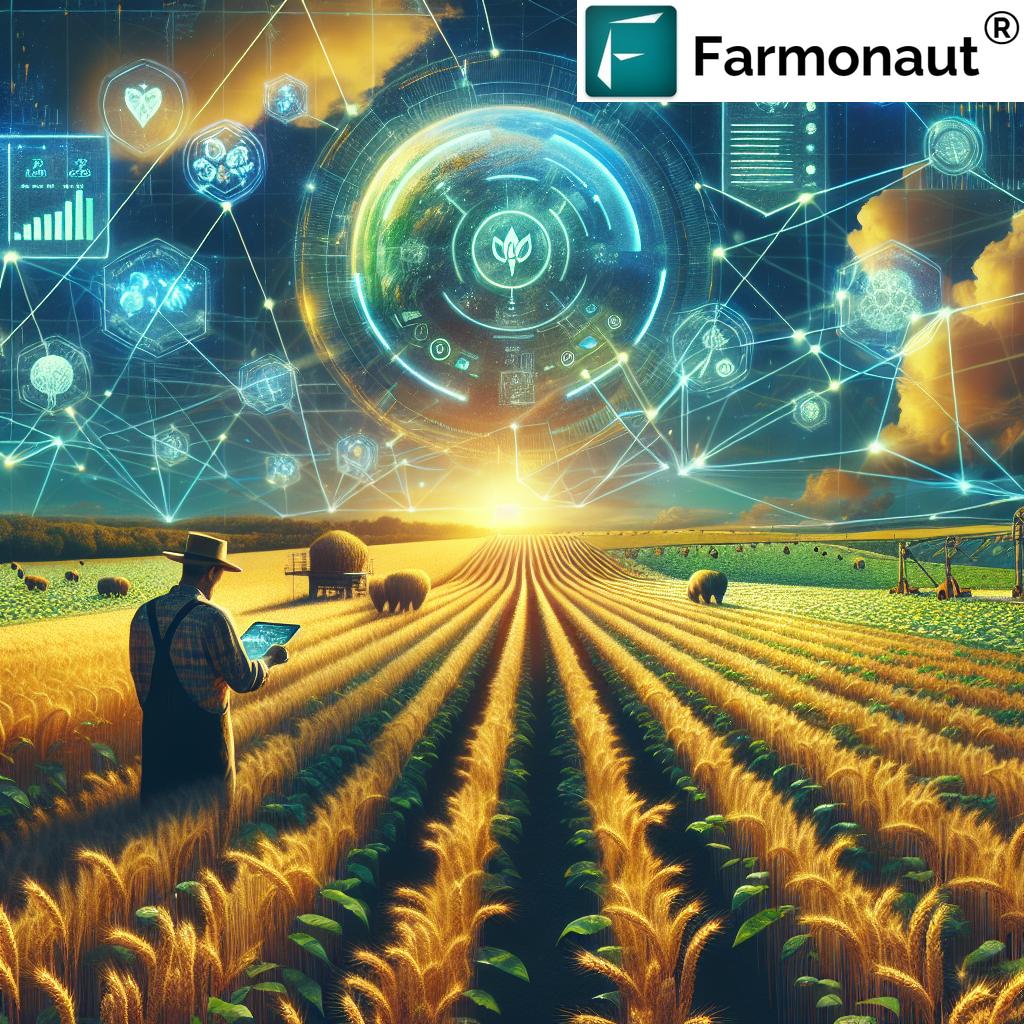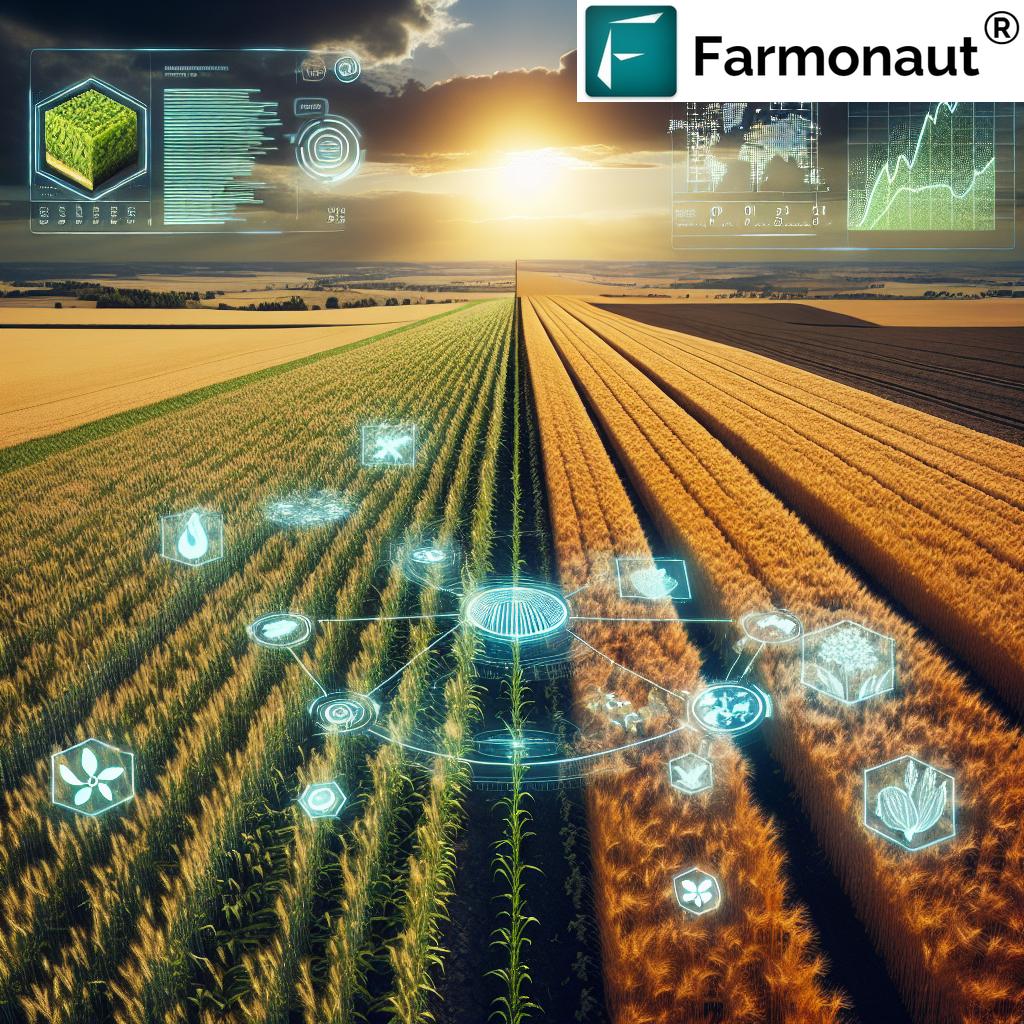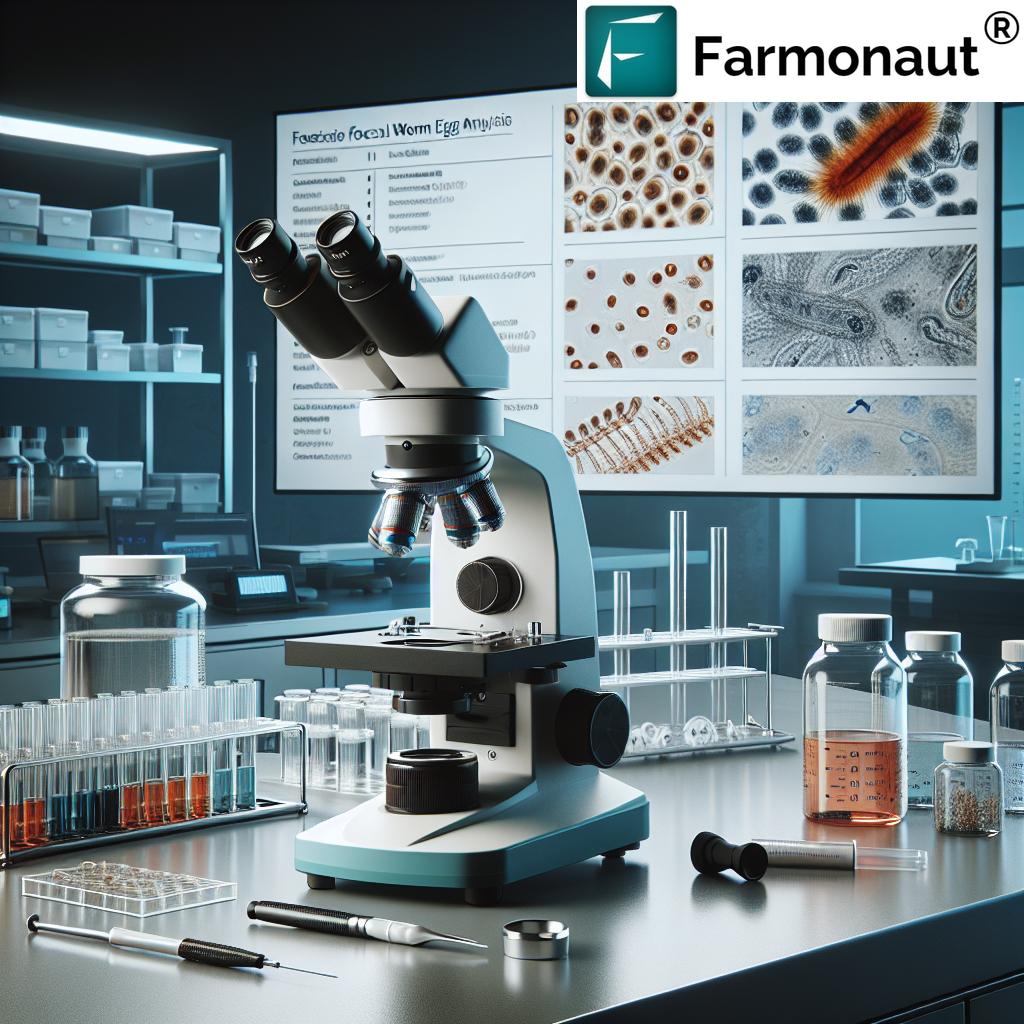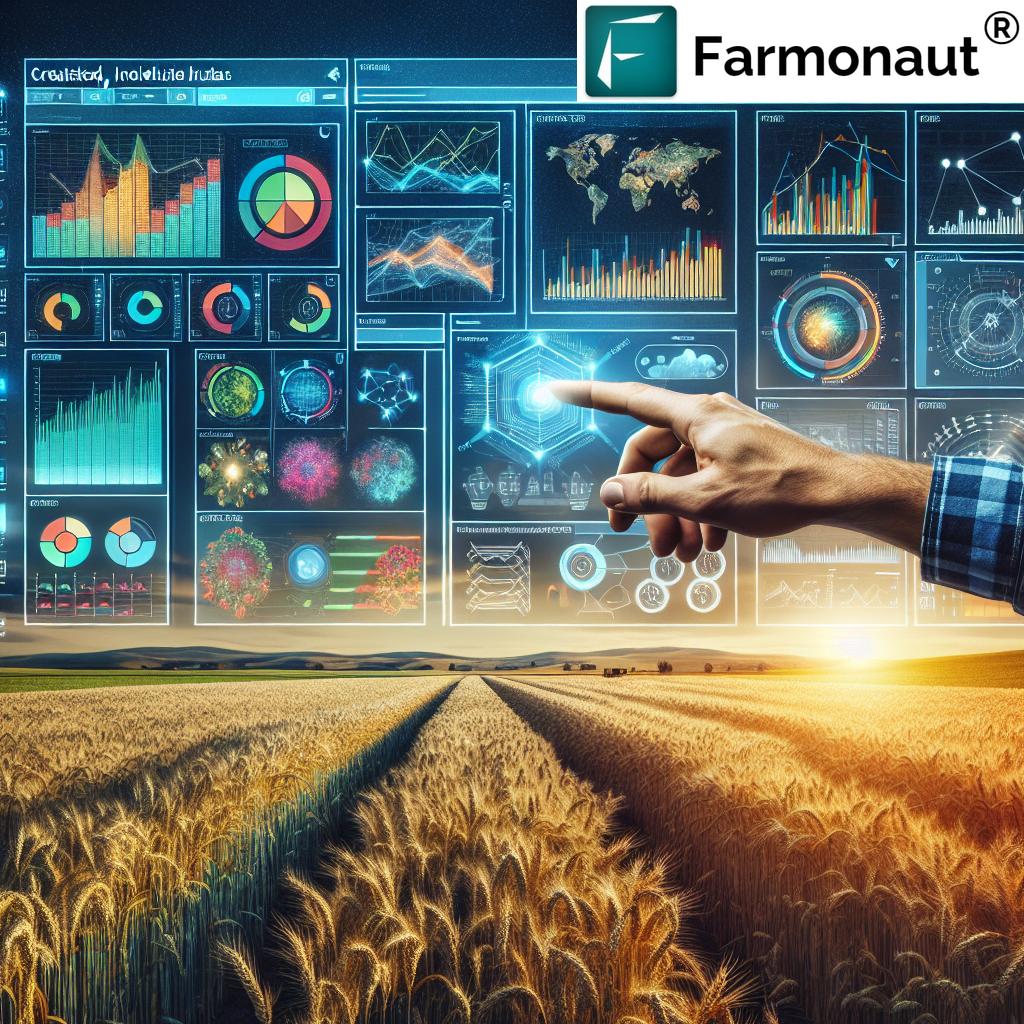Best Tools for Farm Sustainability: Top 10 in 2024
Table of Contents
- Introduction
- Trivia: The Impact of Farm Sustainability Tools
- Feature Comparison Table – Top 10 Sustainable Farming Tools
- 1. Precision Agriculture Technologies
- 2. Farm Management Software
- 3. Renewable Energy Solutions for Farms
- 4. Water Conservation in Agriculture
- 5. Soil Health Management Tools
- 6. Nutrient Management Software
- 7. Regenerative Agriculture Tools
- 8. Carbon Footprint Assessment for Farmers
- 9. Sustainable Land Use Planning
- Trivia: Sustainability & Efficiency
- 10. Education and Training Platforms
- Farmonaut: Revolutionizing Farm Management
- Farmonaut Subscriptions & Pricing
- FAQ
- Conclusion
Introduction: Exploring the Best Tools for Farm Sustainability in 2024
As we move into 2024, sustainable farming practices are not just popular trends but vital for the future of global agriculture. Our world faces pressing challenges—resource scarcity, erratic climate conditions, declining soil health, and increasing demands on food systems. To address such obstacles, the adoption of precision agriculture technologies and a variety of other smart solutions has become the new norm in agricultural management.
By integrating advanced farming tools, we enable farmers to achieve higher crop yields, improve resource efficiency, and decrease their environmental impact. This comprehensive guide presents an in-depth overview of the best tools available for farm sustainability in 2024, highlighting their functions, advantages, and how they promote soil health, conserve water, and support overall sustainability in agricultural operations.
“Over 70% of farmers using precision agriculture tools report improved soil health and reduced chemical usage in 2024.”
Feature Comparison Table – Top 10 Sustainable Farming Tools
| Tool Name | Type/Category | Main Function | Estimated Cost ($) | Resource Efficiency Improvement (%) | Estimated Yield Boost (%) | Supported Crop Types | Sustainability Certifications |
|---|---|---|---|---|---|---|---|
| Farmonaut Satellite Crop Monitoring | Precision Agriculture | Satellite-based crop health & soil monitoring | 120–400/yr | 25–40 | 15–25 | All crops | Yes |
| Farm Management Software | Digital Management | Farm planning, resource & compliance tracking | 80–500/yr | 15–30 | 10–20 | All crops | No |
| Solar-Powered Irrigation Systems | Renewable Energy | Solar-supplied irrigation; off-grid power | 1800–6000 | 20–30 | 18–23 | Vegetables, grains, orchards | Yes |
| Smart Water Meters/Moisture Sensing Controllers | Water Conservation | Water use monitoring, leak detection & optimized irrigation | 150–400/unit | 12–35 | 10–17 | Irrigated crops | No |
| Farm Forestry Toolbox | Soil & Biodiversity | Agroforestry planning; soil conservation | 0–150/yr | 10–20 | 6–12 | Perennials, mixed farms | Yes |
| COMET-Farm | Carbon/Nutrient Management | Greenhouse gas accounting & emissions reduction planning | 0–200 | 18–30 | 8–14 | All crops | Yes |
| Regrown Satellite Platforms | Regenerative Agriculture | Field-level regenerative practice monitoring with AI/ML | 200–600/yr | 17–28 | 10–22 | All crops | Yes |
| Online Carbon Calculators & Credit Platforms | Carbon Footprint | Carbon assessment, reduction, and credit facilitation | 0–150/yr | 12–25 | 7–11 | All crops | No |
| Agroforestry Design Tool | Land Planning | Agroforestry & regenerative land use design | 100–400/yr | 13–21 | 9–15 | Mix/perennial crops | Yes |
| Education & Training Platforms | Capacity Building | Online courses, webinars, field days | Varies | 5–12 | 5–10 | All crops | No |
1. Precision Agriculture Technologies: The Cornerstone of Sustainable Farming Practices
We are living in an era where precision agriculture technologies are reshaping sustainable agriculture. Integrating advanced tools, such as the Global Positioning System (GPS), Geographic Information Systems (GIS), and drones/unmanned aerial vehicles (UAVs), equips us to efficiently monitor and manage field variability in crops.
Key features of precision agriculture include:
- Precise mapping: By utilizing GPS and GIS, we can map fields with accuracy, ensuring inputs like fertilizers and pesticides are applied only where needed.
- Variable Rate Technology (VRT): This tool adjusts the application rates depending on real-time data collected from field sensors. By pinpointing areas of need, it minimizes waste and maximizes resource efficiency.
- Drone & UAV Imagery: Drones equipped with high-resolution cameras and multispectral sensors provide real-time imagery of crop health, pest infestations, and soil conditions, empowering us to provide targeted and timely responses.
The implementation of these technologies reduces unnecessary input usage, boosts yields, and preserves the environment—fulfilling core sustainability goals. Notably, Farmonaut stands at the forefront with affordable satellite-based precision agriculture, offering real-time crop health monitoring through NDVI, soil moisture, and more, accessible via web and app platforms.
Benefits:
- Reduce waste and increase yield by targeting input application
- Improve soil health and reduce environmental impact
- Enhance the speed and accuracy of data-driven decisions
Farmonaut offers powerful solutions for large scale farm management and fleet/resource management, which helps optimize logistics, reduce costs, and support overall sustainability.
2. Farm Management Software: Centralizing Data and Decision-Making
Modern farming operations require unified platforms to manage various aspects of the farm ecosystem. Farm management software delivers vital features, including:
- Crop management & planning: Tools like AGRIVI and Farmbrite support scheduling, crop rotation planning, and health tracking.
- Regulatory compliance: Helps farmers adhere to environmental and safety standards, a critical part of sustainable farming practices.
- Resource tracking: Monitoring fertilizer, water, and energy usage helps us minimize waste and optimize inputs.
- Yield prediction: Real-time analytics empower us to forecast yields and prepare for market fluctuations.
Advanced platforms—like Farmonaut—go further, integrating satellite imagery, AI-powered advisory (Jeevn AI), and even blockchain-based traceability, making them a central hub for farm data, compliance, and smart decision-making.
For developers and other businesses, Farmonaut offers a comprehensive API for direct integration of satellite data. Explore the Farmonaut Agricultural API and get started with seamless integrations by browsing the Farmonaut API Developer Docs.
For instant, data-driven answers and peace of mind, Farmonaut’s AI-based crop management and monitoring platforms can be accessed globally via:
3. Renewable Energy Solutions for Farms: Powering Sustainability
Traditional agriculture operations often rely on fossil fuels, contributing to carbon emissions. However, renewable energy solutions for farms—specifically solar and wind—are transforming the sector by reducing energy costs and environmental impact.
- Solar panels: Deployable on rooftops or open lands, they power everything from irrigation pumps to warehouse lighting.
- Wind turbines: Especially effective where wind is consistent, they provide clean and sustainable power for agricultural operations.
By investing in renewables, we can make farming operations resilient, cut costs, and progress towards “net-zero” emissions. These tools are scalable and suitable for small family farms as well as large plantations.
Farmonaut’s carbon footprint tracking solutions help us monitor reductions in emissions resulting from renewable adoption, enabling transparent reporting and informed planning.
4. Water Conservation in Agriculture: Tools and Technologies
Because water scarcity and wastage threaten both yields and long-term viability, water conservation in agriculture is pivotal. Innovative tools enhance our efficiency, boost productivity, and save resources.
- Smart water meters: Monitor real-time water usage across the farm, detect leaks, and identify high-consumption areas to implement corrective measures quickly.
- Moisture-sensing irrigation controllers: These devices adjust irrigation schedules automatically based on soil moisture data, which minimizes unnecessary water use while promoting optimal crop growth.
- Data integration: Utilizing platforms like Farmonaut, which merge satellite-derived soil moisture data with local sensor inputs for even higher accuracy in irrigation management.
By embracing these solutions, we are reducing costs, improving water use efficiency, and promoting sustainable farming practices to safeguard both our farms and water resources.
5. Soil Health Management Tools: Sustaining the Foundation of Agriculture
Healthy soil is at the core of sustainable agriculture. Soil health management tools and platforms are essential for biodiversity, nutrient cycling, and productivity. Modern tools include:
- Farm Forestry Toolbox: This software guides us through planning, implementation, and management of agroforestry practices, fostering biodiversity and protecting soil structure.
- Agroforestry Design Tool: Platforms such as AgroforestryX help design regenerative agroforestry systems aligned with local site conditions, supporting sustainable land use planning and long-term soil health.
- Farmonaut’s soil monitoring via satellite: Delivering continuous tracking of soil moisture, organic carbon, and vegetation health indices for precise management and improvement.
Maintaining soil health with these tools not only ensures sustained productivity but also aids carbon sequestration and climate resilience.
Farmonaut enables persistent, cost-effective satellite tracking for soil improvement. Discover all our advisory services for crop plantation, forestry, and soil enhancement.
6. Nutrient Management Software: Optimizing Growth, Minimizing Loss
Inaccurate use of fertilizers leads to environmental damage and economic loss. That’s why nutrient management software is crucial for sustainable farming:
- Planning and tracking: These systems enable us to plan nutrient applications precisely, reducing runoff and losses.
- Data-driven decisions: Use real-time information, weather forecasts, and field-level data to time fertilizer applications, ensuring maximum uptake by crops and minimal leaching.
- COMET-Farm: A leading web-based tool that not only evaluates nutrient management but also assesses emissions, supporting overall climate-smart farming.
By integrating nutrient management with weather, crop, and soil monitoring, we create a powerful ecosystem approach that improves both yield and sustainability of our operations.
7. Regenerative Agriculture Tools: Repairing Ecosystems for the Future
Regenerative agriculture tools aim to restore soil health, enhance biodiversity, and build more resilient farming systems. They include:
- Regrow/Similar Satellite Platforms: Offer AI and machine learning tools for regenerative practice monitoring, measuring results such as soil organic carbon and the impact of cover cropping.
- Agroecology Tools: Integrate traditional farming wisdom with modern science, deploying bio-fertilizers, cover crops, and companion planting. They provide the framework for true soil regeneration over time.
By combining technology with ecosystem-based management, we assist soil restoration, foster biodiversity, and minimize negative environmental impact.
8. Carbon Footprint Assessment for Farmers: Measuring and Managing Emissions
With climate change intensifying, tracking and reducing greenhouse gas emissions from agriculture is a global imperative. Carbon footprint assessment for farmers has become standard practice, made easier by accessible tools:
- Online carbon calculators: Enables us to estimate emissions from our farming activities, providing suggested strategies for reduction.
- Carbon credit platforms: Support farmers in earning credits through climate-friendly practices like reduced tillage or cover cropping, turning sustainability into economic opportunity.
- Farmonaut’s carbon tracking: Offers real-time, satellite-based measurements for comprehensive carbon management and reporting—aiding sustainability certifications and market incentives.
For more, explore our dedicated carbon footprinting solutions.
Blockchain-based product traceability also ensures transparent record-keeping, crucial for compliance and market access.
9. Sustainable Land Use Planning: Integrating Long-Term Resilience
“Sustainable land use planning” ensures every hectare is utilized for maximum benefit—balancing productivity with conservation. Key features involve:
- Land use software & Agroforestry Design Tool: Used to simulate, analyze, and implement diverse cropping and forestry patterns, while preventing land degradation.
- Integrated management platforms: Bring together mapping, crop rotation, resource allocation, and yield analytics to help us pursue truly sustainable outcomes.
Farmonaut’s satellite monitoring bolsters land use planning with historical records, compliance archives, and predictive analytics, supporting both day-to-day management and long-term transformation.
“Sustainable farming technologies can increase crop yields by up to 25% while conserving 30% more water annually.”
10. Education and Training Platforms: Empowering Knowledge Transfer
New technologies are only as effective as the people using them. This is why education and training platforms are vital to adopting sustainable farming practices:
- Online courses and webinars: Top agricultural organizations and research bodies offer flexible, immersive learning on sustainable techniques, soil health, pest management, and digital tools.
- Workshops and field days: In-person opportunities run by local extension services provide first-hand experiences of innovative farming tools and approaches.
Ongoing training is critical for upskilling farmers, enabling them to leverage the latest advancements and continuously improve farm management.
Farmonaut: Revolutionizing Agricultural Management for Sustainability
When we seek a comprehensive solution for precision agriculture technologies, soil health tracking, carbon management, and agroforestry planning, Farmonaut offers an optimal, cost-effective suite of tools for all types of users—from smallholder farmers to large agribusinesses and government agencies.
Key Offerings:
- Satellite Monitoring: Multispectral imagery allows us to monitor crop health, soil moisture, organic carbon, and track variability across fields, contributing to real-time data-driven planning and input optimization.
- AI-Enabled Advisory (Jeevn AI): The Jeevn AI system provides real-time, tailored crop management strategies, integrating current crop status with hyperlocal weather forecasts and best practices from global agronomy.
- Blockchain Traceability: Provides secure, transparent tracking of produce from farm to end consumer, building trust for brands and improving access to high-value markets.
- Resource & Fleet Management: Via web and mobile platforms, robust solutions help us optimize machinery, fuel, and logistics across vast agricultural operations, reducing costs and boosting resource efficiency.
- Carbon Footprinting: Integrated modules continuously calculate and report carbon footprint for emissions tracking, certification, and climate-smart planning.
Farmonaut’s key value lies in accessible, affordable precision agriculture—making digital technologies available to all through app and cloud solutions, without the need for costly, specialized hardware.
For more, read about Farmonaut’s Blockchain-based Traceability Solutions, which provide critical supply chain transparency and build market credibility.
And for risk management, Farmonaut offers crop loan and insurance verification via satellite, helping financial institutions and farmers alike access safe, affordable credit.
Farmonaut’s products support: individual farmers, cooperatives, government agencies, agribusinesses, and corporate supply chains. The modular, scalable system ensures relevant, targeted tools are always at your fingertips.
Farmonaut Subscriptions & Pricing
To make our technologies universally accessible, Farmonaut offers flexible, subscription-based pricing for all user segments—individuals, groups, and institutions. See below for details and secure your access to the world’s most advanced satellite-powered agricultural management ecosystem!
You can deploy all of Farmonaut’s solutions on the web, Android, and iOS using the links below:
Frequently Asked Questions (FAQ)
-
What are the most important tools for farm sustainability in 2024?
The top tools include precision agriculture technologies (such as Farmonaut’s satellite solutions), farm management software, renewable energy systems for farms, water conservation technologies, soil health management tools, nutrient management software, regenerative agriculture platforms, carbon footprint assessment solutions, sustainable land use planning tools, and education & training platforms. -
How does Farmonaut support sustainable farming practices?
Farmonaut integrates satellite imagery, AI advisory, blockchain traceability, and resource management features to optimize input usage, monitor crop and soil health, enable emissions tracking, and provide real-time decision support—all driving sustainable agriculture outcomes. -
Can tools like drones and sensors be integrated with software platforms for better results?
Yes. Platforms like Farmonaut are designed to utilize data from satellites as well as ground-level sensors (drones, soil moisture probes, etc.), providing a comprehensive, precise approach to monitoring and managing farming operations. -
Is there a way to assess the carbon emissions produced by our farm operations?
Absolutely! With Farmonaut’s integrated carbon footprinting modules and supporting online carbon calculators, you can continuously track, report, and plan for emission reductions, plus access carbon credit marketplaces. -
Are sustainable farming tools suitable for small-scale farmers?
Yes. Many tools—including Farmonaut—offer scalable, affordable solutions that accommodate both small and large operations, making sustainability accessible for everyone. -
How do online courses and field days contribute to farm sustainability?
Education and training platforms provide vital skills and updates on industry best practices, ensuring that farmers stay informed and effective in implementing the latest sustainable technologies and strategies.
Conclusion: Building a Sustainable and Efficient Agricultural Future
The integration of advanced tools across farming operations not only increases productivity and yields but also ensures that we, as responsible stewards of the land, are actively preserving soil health, conserving water, reducing carbon emissions, and fostering long-term environmental resilience.
With solutions like Farmonaut, farmers from every region and of every scale can now access precise, actionable data and comprehensive management tools—all powered by the latest satellite and artificial intelligence technologies. The path forward is clear: by adopting sustainable farming practices and harnessing the best tools of 2024, we can secure abundant harvests, profitable farms, and a thriving planet for generations to come.
Join us in shaping a more sustainable and efficient future for farming—powered by innovation, knowledge, and our shared commitment to the earth!


